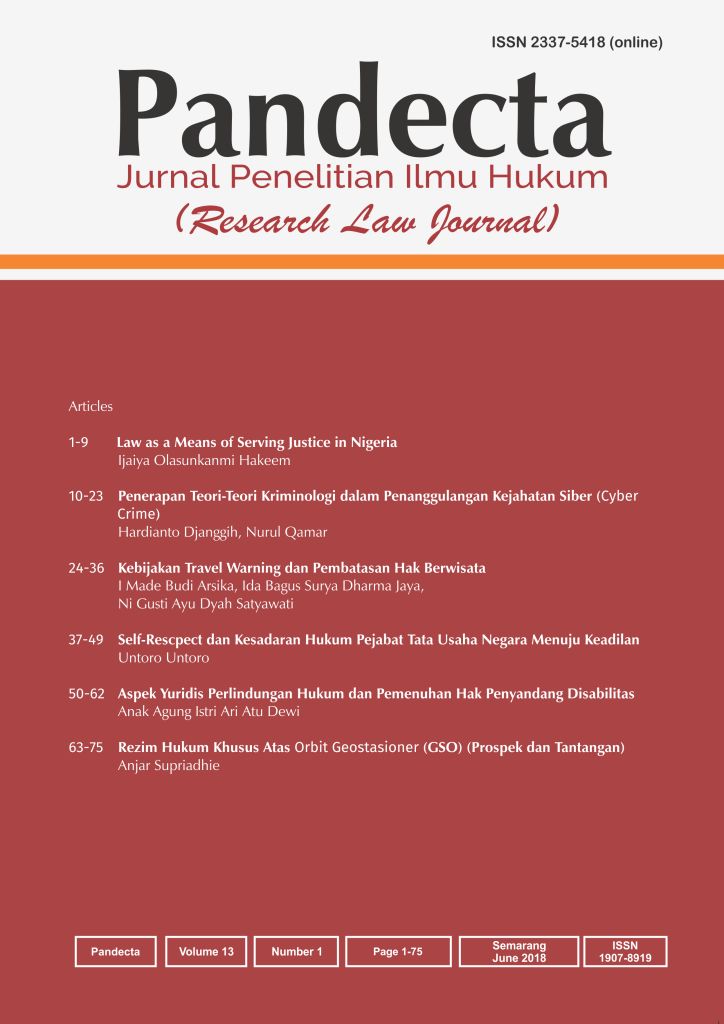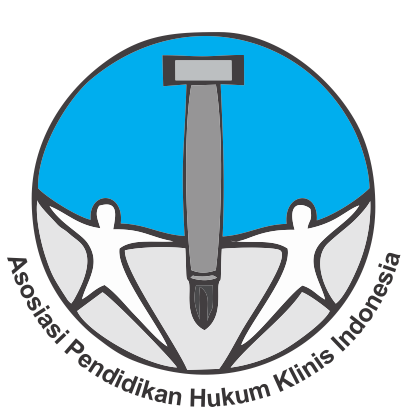- Focus and Scope
- Section Policies
- Peer Review Process
- Publication Frequency
- Open Access Policy
- Archiving
Focus and Scope
Pandecta Research Law Journal is a scientific legal publication dedicated to exploring contemporary legal issues in Indonesia. Specializing in Indonesian law, this journal consistently publishes a diverse array of articles across various legal domains. With a firm commitment to fostering international collaboration and knowledge exchange, Pandecta Research Law Journal serves as a prominent platform for disseminating legal research findings and facilitating discussions on the dynamic developments in the Indonesian legal landscape. Indonesia, as a developing country, offers a rich and fascinating landscape for legal development studies. Its extensive jurisdiction encompasses a diverse array of factors, including social politics, culture, ethnicity, religion, and local wisdom. These multifaceted influences contribute to the complexity and diversity of legal developments in Indonesia, rendering them both captivating and highly relevant to the international community. The unique interplay of these elements makes legal studies in Indonesia not only interesting but also invaluable for gaining insights into the broader global context and understanding the dynamics of legal systems worldwide.
Section Policies
Articles
Peer Review Process
All manuscripts submitted to this journal must follow Focus and Scope and Author Guidelines of this journal. The submitted manuscripts must fulfill scientific merit or novelty appropriate to the focus and scope of this journal. All manuscripts submitted to this journal must be written in good English. Authors for whom English is not their native language are encouraged to have their paper checked before submission for grammar and clarity. English language and copyediting services can be provided by International Science Editing and Asia Science Editing. The work must not have been published or submitted for publication elsewhere.
All submitted manuscripts must be free from plagiarism content. All authors are suggested to use plagiarism detection software to do the similarity checking (please use Turnitin or iThenticate to check the similarity). Editors will also check the similarity of manuscripts in this journal by using a Turnitin or iThenticate software. The submitted manuscripts to this journal will be peer-reviewed at least 2 (two) or more expert reviewers. The reviewers give scientific valuable comments improving the contents of the manuscript. Sometimes (if required) a third peer-reviewer is needed to give critical comments to the submitted manuscript. The review process used in this journal is a double blind review system.
The final decision of manuscript acceptance is solely made by Editor in Chief/Regional (Handling) Editor (together with Editorial Board if required) according to reviewers' critical comments. The final decision of the manuscript is solely based on the Editor's final review which considering peer-reviewers comments (but not solely by Reviewer). Publication of accepted articles including assigning the article to the published issues will be made by Editor in Chief by considering the sequence of accepted date and geographical distribution of authors as well as a thematic issue.
Publication Frequency
Since the first edition this journal is published twice in January and July every year untill the second edition of 2014 it was changed to June and December every year.
Open Access Policy
This journal provides immediate open access to its content on the principle that making research freely available to the public supports a greater global exchange of knowledge.
Archiving
This journal utilizes the LOCKSS system to create a distributed archiving system among participating libraries and permits those libraries to create permanent archives of the journal for purposes of preservation and restoration. More...


